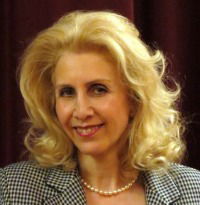Of course, there are many people who do work for no money. They are termed voluntary workers, or volunteers and there are countless such individuals who take on and enjoy that role. Their satisfaction is derived from helping others and not from any financial reward. The reward that makes a difference to the life of another human being is enough for them. However, there is a debate as to whether people really do things for purely altruistic reasons or whether there is also an inner benefit for themselves.
I remember when I worked in the evenings as a volunteer for the Samaritans (an international crisis helpline), for over 20 years, that the satisfaction I received in helping someone in a personal crisis, far outweighed any remuneration.
Job Satisfaction Survey
This week, I was sent a survey into job satisfaction and the results showed that money does not necessarily bring happiness. One in ten workers said they ‘loved’ their job so much that they would do it for nothing and researchers discovered that 11% claim they would carry on working even if they were not paid! One in eight of those in poorly paid jobs said they were very happy in their work, compared with just nine per cent of higher earners. It was also interesting to read that this study, which polled more than 8,000 workers including 1,968 in Britain, found that younger workers were apparently the least happy.
So where are you on the ‘job satisfaction’ scale? Well, I guess you will say that you can’t love your job all the time and of course you are right. There will be tasks you enjoy doing and things you don’t. That is the nature of our day-to-day job. The question is, are you generally happy, overall? Do you have a ‘spring’ in your step when you go to work or do you have to pull yourself out of bed as you reluctantly have to face another day at the office? An interesting question.
Now I can already hear some of you saying that satisfaction is a nice to have but not a necessity and of course the job needs to get done, whether you like it or not. But think of how much more efficient and enjoyable your role would be if you really loved what you do – which reminds me of the well-known line from The Prophet by Khalil Gibran, which says, ‘work is love made visible’.
And then whose responsibility is it to try and encourage their employees to love their work rather than just having to ‘get through it’? I would argue that this is a joint responsibility. The employer who doesn’t value the individual who works for them and makes that clear to them, will probably not have an employee who feels happy in what they do. After all, we all usually like to think that we are doing a good job. On the other hand, there is the employee who is always complaining about their work but never takes any action to try to improve their situation. The result is a dysfunctional workplace in which both the employer and employee contribute to a work environment that is counter-productive and expensive in terms of efficiency and health and which invariably results in competitive disadvantage.
If you are that employer, then what can you do about it? Well, you can do nothing and accept the status quo or you can make a decision to find out by taking a ‘satisfaction survey’ of all staff members and employees throughout your organisation to determine how everyone feels about their individual job. The imperative for any business is to get the most out of all those who work for you, on any level.
As an employee, you should take responsibility for what you do and don’t like about your job. Assess each point carefully and see what changes could be made; what support you might need and what training would be helpful; then start to implement those changes.
We don’t go through our lives always being happy. Sometimes, we have to make happiness find us. We need to take action to gain the maximum satisfaction for, and from, our lives.
Key Points
- An efficient organisation has a satisfied workforce
- Your human resource is your most important resource
- Value those who work for you and they will work twice as hard
Written by Carole Spiers and reprinted with the kind permission of Gulf News.





